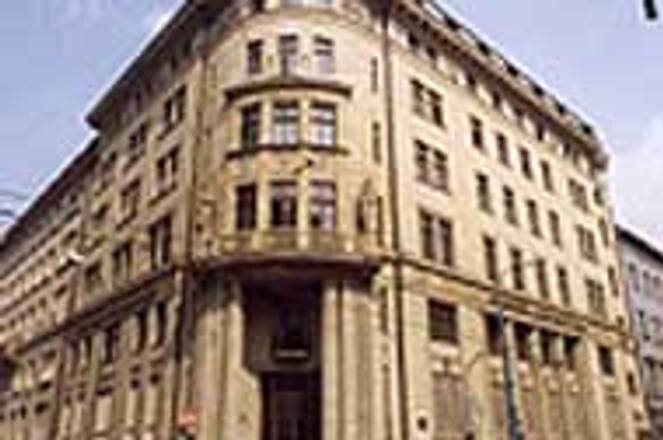Though the state is slated to sell the debt-ridden IRB Bank in October, last-minute differences between the cabinet and the National Bank of Slovakia prevented the privatisation plan from being finalised last week.photo: Vladimír Hák- Profit
Last minute differences between the cabinet and the National Bank of Slovakia on June 17 delayed the approval of a plan to privatise Investičná a Rozvojová Banka (IRB), the weakest of Slovakia's state banks that is slated to be sold by October this year.
Finance Ministry spokesman Peter Švec told The Slovak Spectator that after a marathon cabinet session which began on June 16, "negotiations are still continuing between the central bank and the Finance Ministry." Švec would not specify why the IRB sale had not been agreed, saying only that the two sides had several wrinkles to iron out.
National Bank spokesman Ján Onda, however, said that a deal had already been worked out in principle, but that its approval had been interrupted by the inauguratioin ceremony for President Rudolf Schuster. "It should be approved on Wednesday [June 23] next week," he said.
Long path back to health
IRB has been under a caretaker administration imposed by the central bank since December 1997. The government announced on May 19 that it wanted to sell off IRB, as well as troubled state banks Všeobecná Úverová Banka (VÚB) and Slovenská Sporiteľna (SLSP) by the end of the year 2000 at the latest.
Vladimír Hromý, IRB's caretaker administrator appointed on February 5 under the current government, said that despite the absence of an agreement between the Finance Ministry and the central bank, he was counting on the sale of his bank proceeding as planned. "We hope that IRB will be privatised by October 1999," he said in an interview. "We are still proceeding in accordance with the [government's] decision in December 1998 that the bank will be sold as an entire unit to a strategic investor."
Hromý said his hopes rested on the interest expressed in IRB by three potential foreign investors, whose names he would not mention. "These potential strategic investors should come to Slovakia next week to map out the current situation described in the Information Memorandum [an official cabinet statement on IRB and offer of sale]," he said.
Onda sided with Hromý, saying that "there is no reason for the NBS to doubt the October privatisation date." However, Onda was no more forthcoming than Švec when pressed for details on how the IRB sale was likely to proceed. "The government's decision on how to privatise and restructure IRB is the most important element," Onda said. "Once it is taken it will shed more light on the whole process, so we will refrain from comment on the situation until then."
Ján Tóth, a senior analyst with ING Barings, also said he considered the October privatisation date as a realistic goal, adding that it is too late for the government to retreat from the sale. "The die is at last cast," he said.
Means of sale
Hromý said that one of the most important elements in the IRB sale to be solved by the central bank and the cabinet was what to do with the bank's classified loans, many of which had been long-term credits provided for housing. According to Hromý, the best solution to the bad debt was to cut it out of IRB's credit portfolio and transfer it to Konsolidačná Banka, a state financial institution established in 1991 as a repository for low-interest loans held by commercial banks.
The transfer of bad loans to Konsolidačná Banka is the option preferred by the World Bank. The central bank's reserves would be used to absorb the bad IRB loans, leaving the bank's more attractive properties - its information systems and regional branches - to be sold to a foreign investor.
Tóth calcualted that the job of 'cleaning' the IRB's portfolio would cost the Slovak state 11 billion crowns ($250 million), while the task of healing the entire banking sector would be somewhat higher. The World Bank, he said, had advised the government to issue 10-year bonds for 96 billion crowns into the banks' portfolios, leaving 11 billion with IRB, 59 billion with VÚB and 26 billion with SLSP. This step, he said, should be taken within 2 years.
The other option for the disposal of the IRB is to leave the bad debts with IRB and simply offer the bank to any investor willing to take a risk. "If an investor decides to buy IRB and is interested in IRB's assets as well as its passives, it would be reasonable [for the IRB and the government] to seize this chance and save the state as much money as possible," said Hromý.
Hromý said that IRB's financial situation was gradually improving in spite of the bank's horrendous image. "IRB's loss in the first five months of this year is 570 million Slovak crowns," he said, "which in comparison with the previous year is 207 million Slovak crowns lower." Hromý ascribed the improvement to the fact that the costs of financial operations had dropped by 23.1% from 1998.
More than 98% of IRB stock is in the hands of Slovak shareholders, the largest of whom is state insurance giant Slovenská Poisťovňa (SP), which holds a 66% stake and is still controlled by the FNM privatisation agency. The rest of IRB stock belongs to Czech shareholders (0.49%) and a group from Liechtenstein (1.12%).


